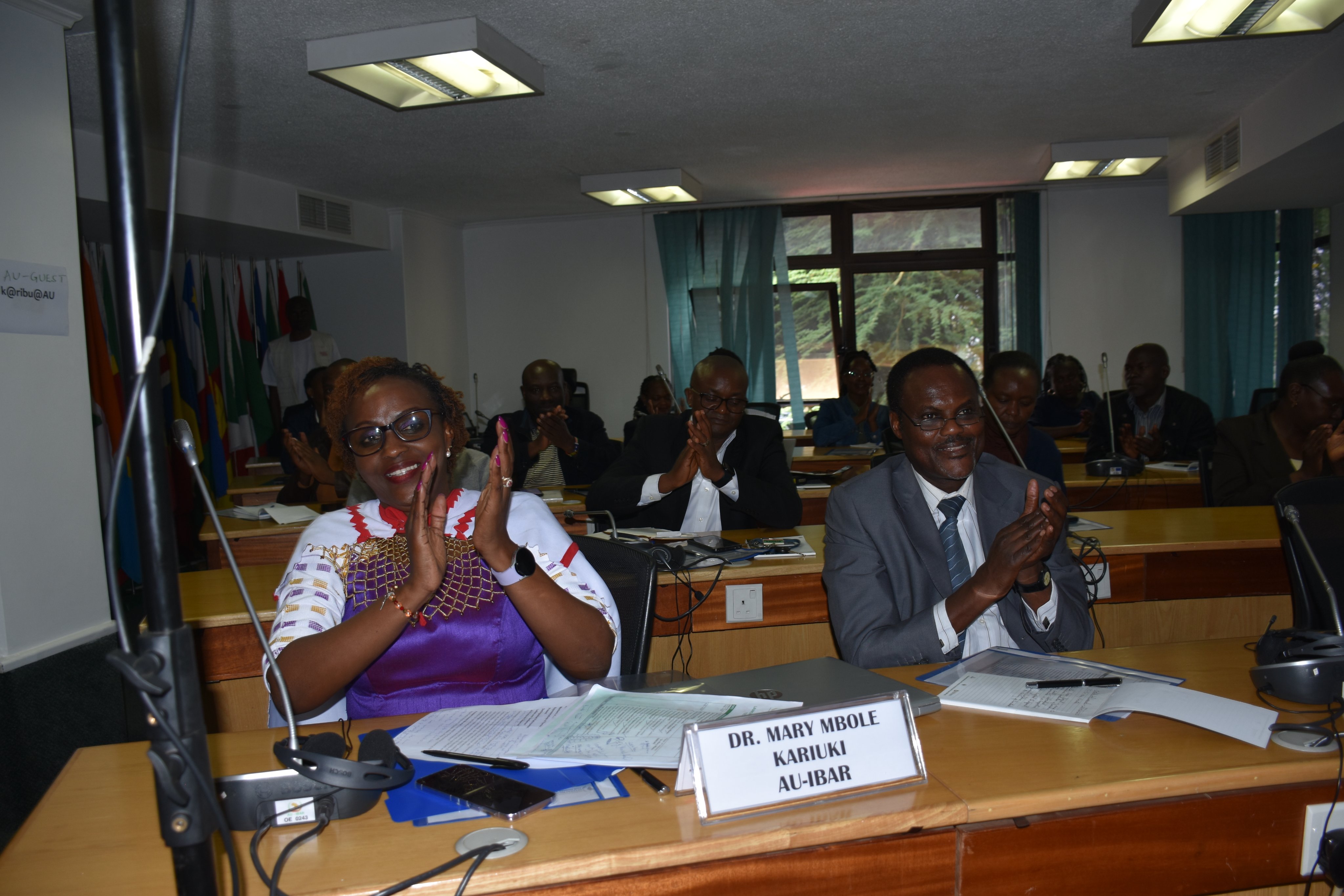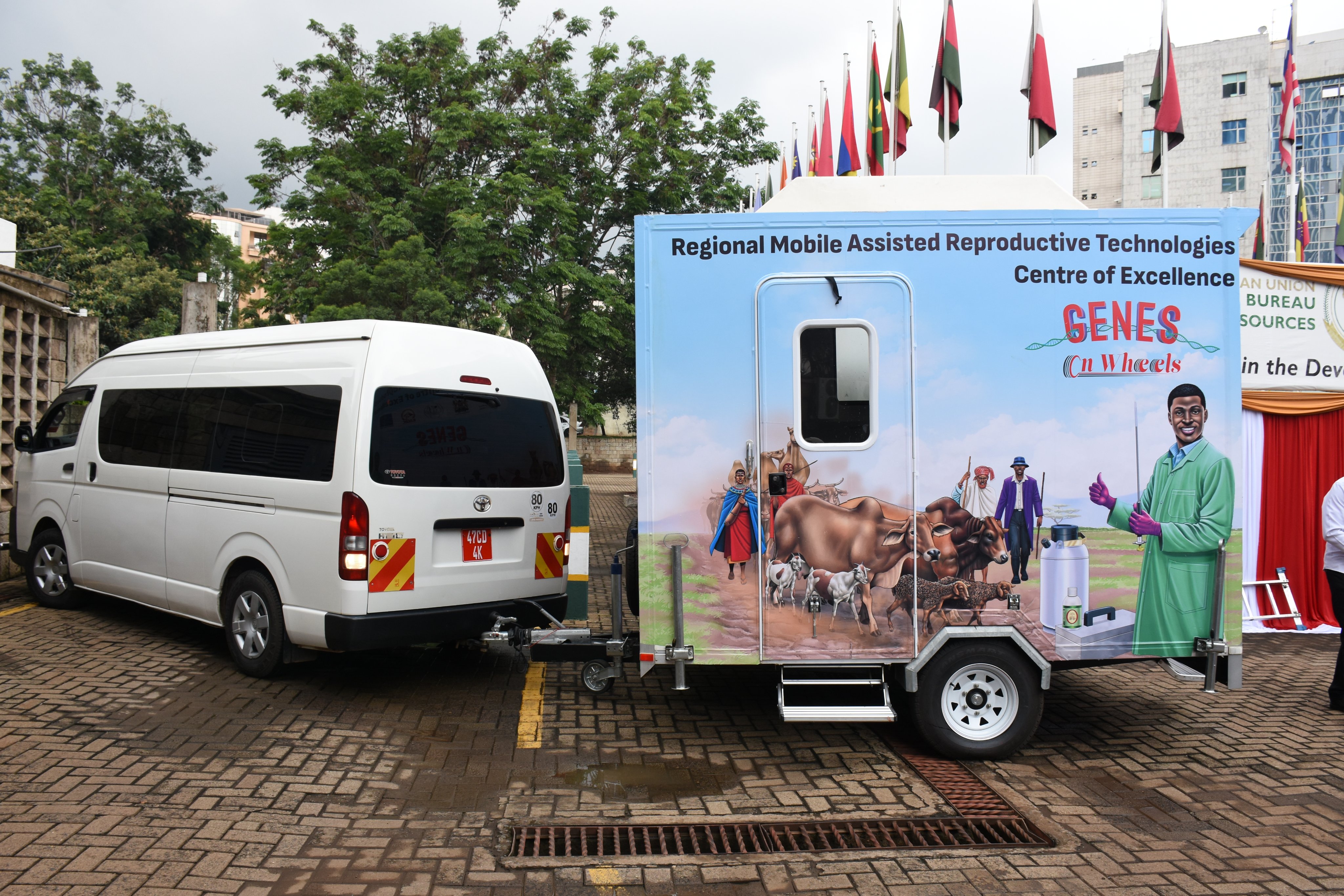Harnessing Technology to Boost Seed Centres of Excellence
Posted by Angela Mutegi on 01 June 2023 12:20 PM CAT

“We were successful in harnessing technology to drive the agenda of quality seed,” says an elated Dr. Mary Mbole-Kariuki, a Livestock Geneticist. Passionate about using animal genetics for rural development, she coordinated technology innovation and skills development for the Live2Africa Project. “When we began the project, I remember making a presentation and showing a small circle and saying that the small cog is the technology wheel that will move all other results,” she adds.

Seed Centres of Excellence
“Technology has come up very strongly with good outputs that speak for themselves,” affirms Dr. Mbole-Kariuki. The impact of technology is evident in the successful establishment and operationalization of the Animal Resources Seed Centres of Excellence. Live2Africa Project operationalized and capacitated five Regional Seed Centres of Excellence previously established under the Animal Genetic Resources Project. The five regional gene banks in Uganda, Botswana, Burkina Faso, Chad and Tunisia located in the Eastern, Southern, West, Central and North Africa, respectively, were given a wider mandate. In addition to storage, they would conduct research, training in molecular characterization and gene conservation, promote best practices in gene banks, create awareness on advantages of indigenous genes and promote knowledge sharing.
First off, Terms of Reference for the African Union Animal Resources Seed Centres of Excellence were developed, with a robust governance framework that includes African Union Interafrican Bureau for Animal Resources (AU-IBAR), Regional Economic Communities (RECs), Livestock Technical Committees, Ministries, and associations of farmers, among others. “The Centres of Excellence received ministerial endorsement and given the go-ahead to establish a continental back-up facility hosted at the Pan African Veterinary Vaccine Centre of African Union (AU-PANVAC),” says Dr. Mbole-Kariuki.
The centres of excellence and a continental back-up facility are critical in averting the extinction of indigenous livestock breeds. “Indigenous animals are important, we need them as the foundation for their ecologically important traits,” notes Dr. Mbole-Kariuki. “Our intention is to get better animals, better production, improved livelihoods and nutrition, all in an environmental positive way,” she adds.
A vibrant seed sector is crucial in unlocking the potential of locally adapted breeds, while applying existing and innovative new technologies to adapt to the heavy effects of climate change on the African livestock industry. “Africa must be driven by knowledge-based economies,” avers Dr. Mbole-Kariuki. She notes that resource-based economies have largely failed due to increasing scarcity of land resource, changing weather patterns such as frequent occasions of drought, as well as climate change.
Mobile Centres of Excellence
The need to work closely with partners, especially the end user, was apparent. Mobile Assisted Reproductive Centres of Excellence were thus established to drive adoption and utilization of reproductive assisted technologies by the pastoralist communities. This would promote the East Africa Dairy Value Chain. “We realized the need for a means to reach out to pastoralist communities, to move the seed to them,” says Dr. Mbole-Kariuki. She adds, “We want to do multiple ovulations, heat synchronization, AI, hormonal treatments so that all the animals of the same age become pregnant at the same time.” The Centres of Excellence include a well-equipped trailer with various Artificial Insemination and Embryo transfer technologies.

AU-IBAR through the Live2Africa Project, worked with the Kenya Agricultural and Livestock Research Organization (KALRO) and the Kenya Animal Genetic Resources Centre (KAGRC) to train, provide, and distribute the quality seed. “We want to increase animal herd quality and quantity, increase production, have more food and nutrition, have happier women. That is what the trailer is going to do,” adds Dr. Mbole-Kariuki. She notes that the Project will in future collect semen and genetic material from other animals like goats and sheep to populate the Regional Seed Centres of Excellence.
Background
The Sustainable Development of Livestock for Livelihoods in Africa (Live2Africa) Project, was developed as an initiative by AU – IBAR towards the implementation of continental components of the Livestock Development Strategy for Africa (LiDeSA 2015 – 2035). The Live2Africa Project was implemented by AU-IBAR through European Union (EU) and the African Union (AU). The seven year project that run from June 2017 to June 2023, was implemented in all five regions of the continent, in partnership with six Regional Economic Communities (COMESA, EAC, ECCAS, ECOWAS, SADC and UMA),African Union Member States, and with a diversity of technical and implementing partners and livestock value chain actors.